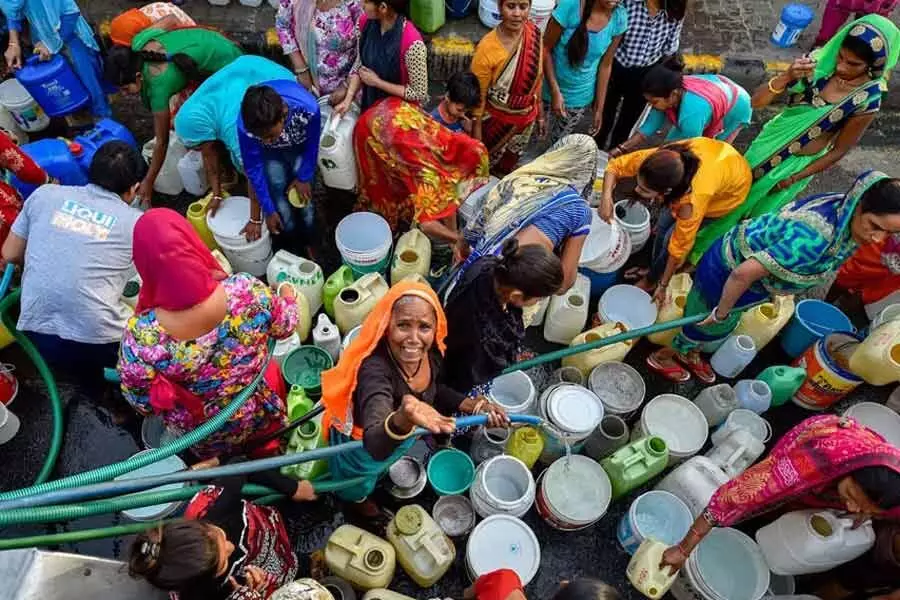Facing a double whammy

Karnataka finds itself at a critical juncture as it grapples with the ominous convergence of two pressing challenges: an escalating water crisis and a forecast of higher-than-normal temperatures. The people living in the state were already witnessing acute water shortage, and now the heatwave forecast has compounded their problems, indicating there is no respite in near term. The double whammy faced by the state is yet another reminder of how climate change can cripple the daily life of any populace. It also serves as a lesson for Karnataka and the rest of the country to shed the traditional approach of treating vital natural resources like water in a careless manner. The wisdom of this age lies in giving due importance to the natural resources and systems that might already be running out of place. While it will be crucial to see what lessons do policymakers and citizens learn from the Bengaluru water crisis in future, the immediate and more important challenge is to relieve the people from this crisis, and make them ready for the days/weeks to come. The recent advisory issued by Karnataka’s Health Minister highlights the imminent dangers posed by the sweltering heat. With temperatures soaring above 40 degrees Celsius in various districts, including Bengaluru, the risk of heat-related illnesses such as sunstroke and dehydration looms large. The minister's directive to stock hospitals with necessary medications should be implemented in a timely manner.
It may be noted that Bengaluru, the capital city of the state, already faces a shortfall of 500 million litres per day (MLD) in its water supply. Additionally, many water reservoirs are depleted and borewells have dried up—leaving thousands of villages and wards across Karnataka parched and desperate for relief. Farmers in these areas have little option going forward. Their plight in horticultural belts like Hoskote and Kolar paints a grim picture of the human toll exacted by the water crisis. Failed borewells, withering crops, and escalating costs have pushed many farmers to the brink of despair, threatening their livelihoods and exacerbating food insecurity in the region. The reliance on water tankers and the proliferation of irrigation projects are a few of the desperate measures adopted by farmers to sustain their crops amidst dwindling water resources, often to little avail. Consequently, the prices of vegetables and several other items grown in the state have risen, and are expected to soar further if there is no rainfall in the coming days.
Under these circumstances, the Chief Minister of the state has requested Maharashtra for water release from the Warna/Koyna Dam. Furthermore, apart from civic administration's attempts to cap water tanker prices and curb the influence of the tanker mafia, residents of Bengaluru, both in apartments and independent houses, are taking personal initiatives to conserve water. The Bengaluru municipal authorities have recently resolved to refill dwindling lakes with 1,300 million litres of treated water daily, aiming to recharge the city's groundwater reservoirs and revive approximately 50 per cent of the currently inactive borewells.
In the longer run, investment in drought-resistant crops, micro-irrigation techniques, and water conservation measures is essential to build resilience and adapt to the changing climate. At the same time, concerted efforts are needed to raise awareness and mobilise resources to support vulnerable communities impacted by the water crisis and rising temperatures. As Karnataka confronts the dual challenge of water scarcity and extreme heat, the time for action is now. The stakes are too high to ignore, and the consequences of inaction are too dire to contemplate.




